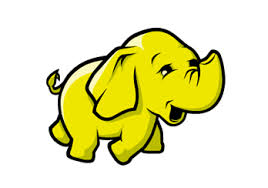Can it be true?
Will there be Oracle on OpenVMS again? Meaning the “regular” (sorry) Oracle (12c) RDBMS on a revived VMS?
As many who have ever lived on OpenVMS have always known:
OpenVMS will never die!
OpenVMS can never die, bec ause it is still running way to many hidden, hyper-mission-critical environments.
ause it is still running way to many hidden, hyper-mission-critical environments.
The fact that these environments are hidden, combined with the fact nobody ever spent any marketing budget on OpenVMS at all, created a super solution nobody knows about. And you cannot love what you don’t know.
A lot has been happening around this tormented operating system. OpenVMS is indefinitely bound to Digital Equipment Corporation (DEC) which was acquired by Compaq in June of 1998 and then merged into Hewlett Packard in May 2002.

Personally I have lost access to OpenVMS, and Oracle op OpenVMS, around 1995, when these systems were replace by HP Unix. I never fully recovered 😉
Until a few years ago I was introduced to a Alpha emulator, which creates a virtual machine with (obviously) an Alpha processor, which allows you to run OpenVMS. This was one step closer (back) to Oracle on OpenVMS.
Recently (like the day before yesterday, recently) I learned a number of new things! One is that the ongoing development OpenVMS will be take up by VMS Software Inc. (VSI).
But, more importantly, they will be creating new versions for mainstream hardware (such as x86)!! Wilm Boerhout of VX Company wrote an announcement about this not too long ago (article in Dutch)!
And now these rumors…
A porting of Oracle on OpenVMS!
Will we once again see the day that systems just won’t go down? Oracle environments with an uptime with like a dozen or two ‘nines’ behind the decimal-mark? Wouldn’t that be something?
Your own VMS server running an Oracle database with Oracle Application Express (APEX)? Wouldn’t that be something else? High time to clear some of your calendar and get (re)acquainted with this super OS!
A very special “thank you” goes to my dear friend Gerrit Woertman – OpenVMS Ambassador, who never seized to remain a link to the VMS World!!
If you are from The Netherlands, please also join Interexperience, to stay close to the game.
Live free or die



